Table of Contents
Understanding Keyword Research
Keyword research is the process of identifying and analyzing search terms that people use on search engines like Google. It helps businesses understand what their target audience is looking for and enables them to create content that aligns with user intent.
By leveraging keyword research, businesses can improve their search engine rankings, drive organic traffic, and increase conversions.
Why is Keyword Research Important in Digital Marketing?
- Enhances SEO Performance: Optimizing content with the right keywords improves search visibility and rankings on Google.
- Drives Targeted Traffic: Using high-intent keywords ensures your website attracts potential customers actively searching for your services.
- Improves PPC Campaigns: Keyword research helps in running cost-effective Google Ads campaigns by targeting relevant and profitable keywords.
- Boosts Content Strategy: It allows businesses to create valuable content that meets user intent and increases engagement.
- Gives a Competitive Edge: Understanding keyword trends helps in outperforming competitors in search engine results.
Types of Keywords in Digital Marketing
1. Short-Tail Keywords
- Example: “Digital marketing”
- High search volume but broad and competitive
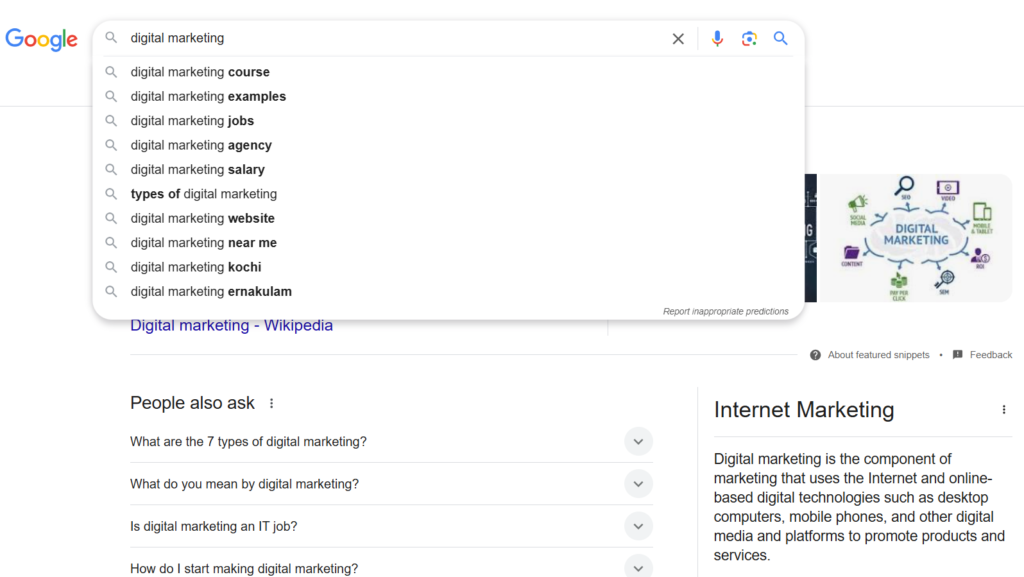
2. Long-Tail Keywords
- Example: “Best keyword research tools for SEO”
- More specific, less competitive, and higher conversion rates
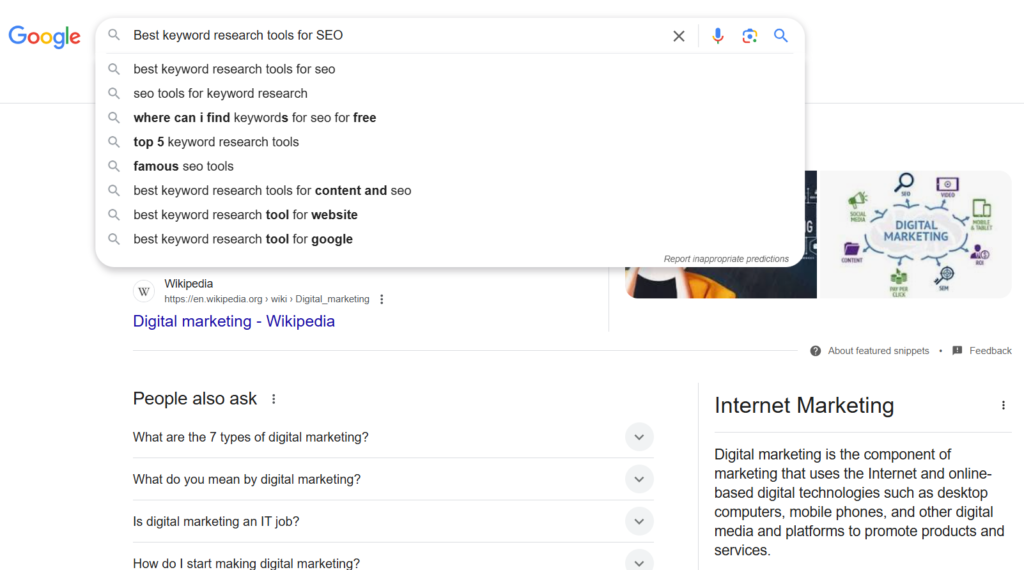
3. Informational Keywords
- Example: “How to do keyword research”
- Used when users are looking for guides, tips, or definitions
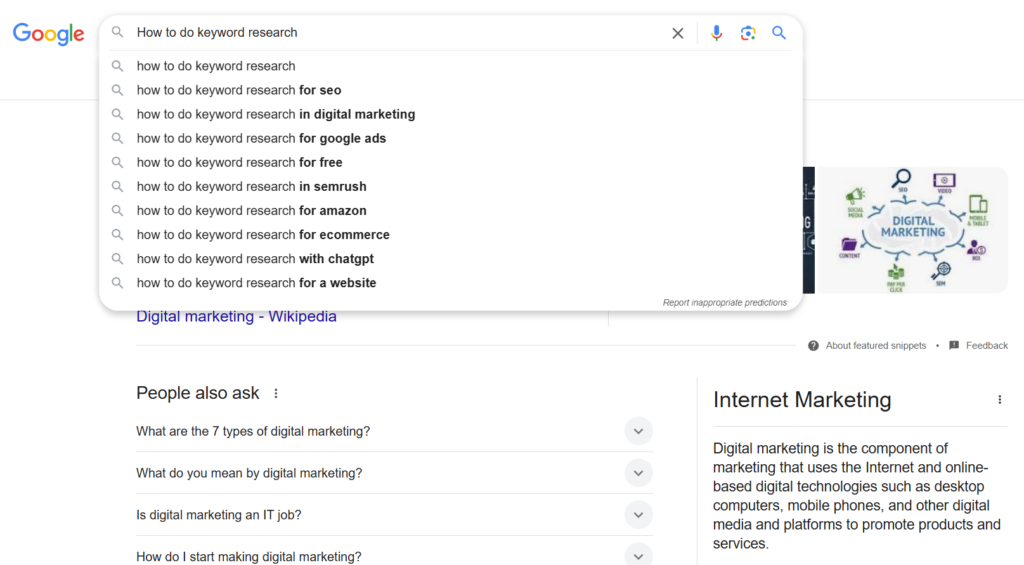
4. Transactional Keywords
- Example: “Buy SEO tools online”
- Used by users with purchase intent
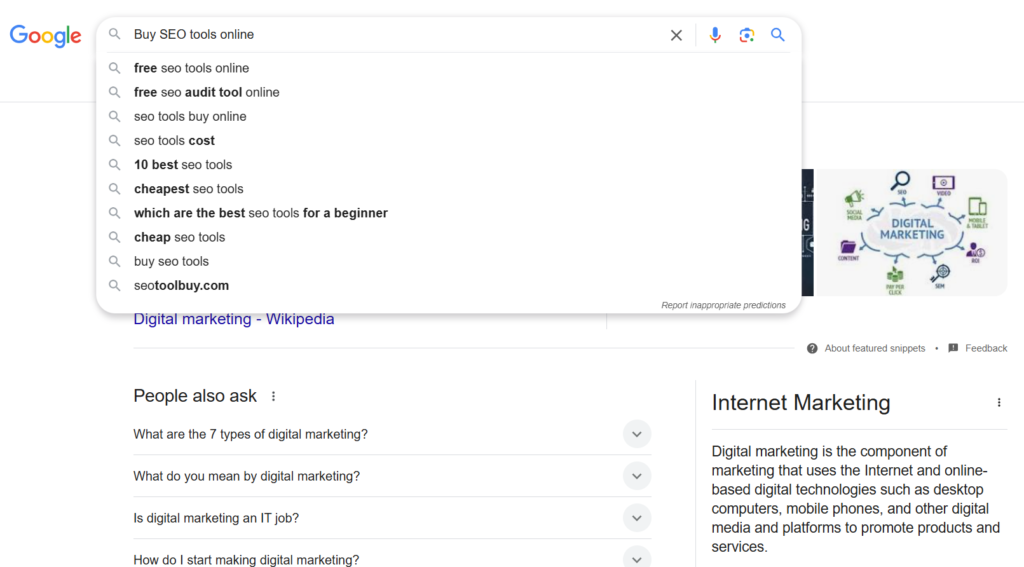
How to Do Keyword Research?
Step 1: Identify Your Audience & Goals
- Understand your target audience, their interests, and search behavior.
- Define your goals—SEO, PPC, content marketing, or all of the above.
Step 2: Use Keyword Research Tools
- Google Keyword Planner – Find high-volume and relevant keywords.
- SEMrush – Discover competitor keywords and track performance.
- Ahrefs – Analyze keyword difficulty and ranking potential.

Step 3: Analyze Keyword Metrics
- Search Volume – The number of times a keyword is searched per month.
- Keyword Difficulty (KD) – A measure of how hard it is to rank for a keyword.
- Cost Per Click (CPC) – Helps in choosing the right keywords for PPC campaigns.
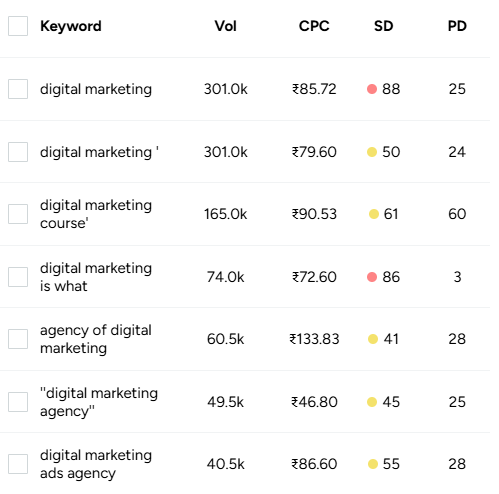
Step 4: Optimize Your Content with Keywords
- Naturally place keywords in headings, subheadings, and body content.
- Use LSI (Latent Semantic Indexing) keywords to improve relevance.
- Optimize meta descriptions, image alt text, and URLs.
Best Practices for Keyword Research in Digital Marketing
✅ Target long-tail keywords for better rankings.
✅ Focus on user intent (informational, navigational, transactional).
✅ Regularly update your keyword list based on trends and competition.
✅ Analyze competitor keywords to find opportunities.
✅ Track keyword performance and refine your strategy.
Final Thoughts
Keyword research is the foundation of any successful digital marketing strategy. Whether for SEO, content marketing, or PPC campaigns, understanding what your audience is searching for can make all the difference.


